Menopause Hair Loss: 6 Effective Ways To Reduce Hair Fall
Hormones or stress cause menopausal hair loss, but a healthy diet and medication can stop it.
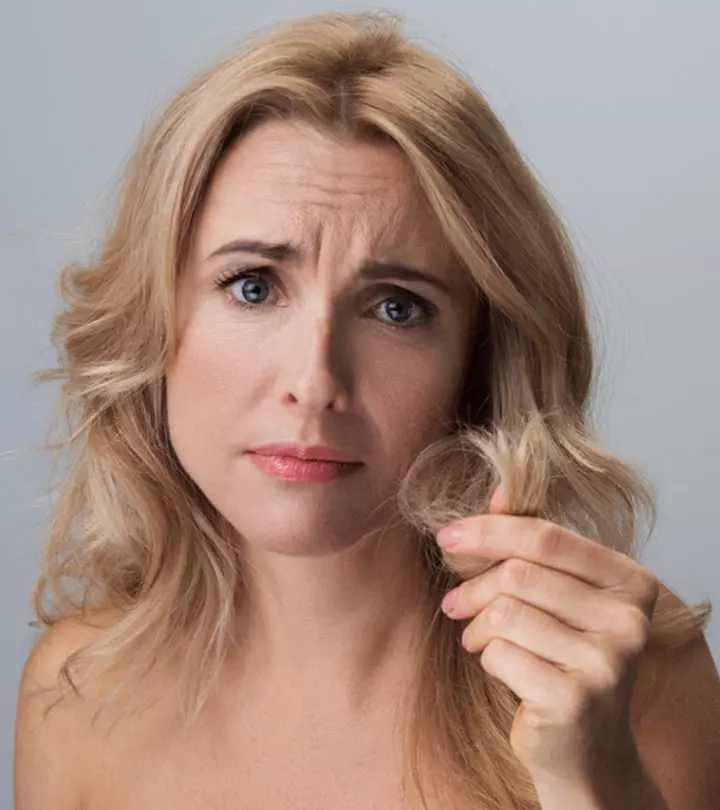
Image: Shutterstock
Menopause is a natural, predestined process. About 20-60% of women experience menopause hair loss by 60 years of age (1). Many factors, like hormonal changes, stress, and sleep deprivation, can lead to excessive hair shedding (2). Since hair loss due to menopause is a common issue, we dug a little deep and found a few good ways you can reduce hair loss and restore hair health. Here’s all the information you need about menopause hair loss. Scroll down!

In This Article
Does Menopause Cause Hair Loss?
- Hormonal Changes: Estrogen levels drop significantly before the onset of menopause (pre-menopause). This increases the levels of testosterone, the male hormone. Dihydrotestosterone (DHT), which originates from testosterone, weakens the hair follicles. This hormonal imbalance leads to female pattern hair loss and hair thinning (1).
- Nutritional Imbalance: Not being aware of what to consume while going through menopause also contributes to hair loss or alopecia in women. Scientists recommend consuming foods rich in vitamins A, B, and C, minerals like zinc, iron, copper, calcium, magnesium, and selenium, complex carbohydrates like veggies and low glycemic index fruits, and protein from plant and animal sources (3).
- Stress: Common symptoms of menopause are depression and anxiety. Such psychological stress can also lead to excessive hair fall or non-scarring alopecia in menopausal women (4).
- Diabetes Mellitus: Diabetes mellitus or type 2 diabetes is also one cause of hair loss during menopause or postmenopause. This medical condition increases the risk of central scalp hair loss in women (5).
- Unhealthy Lifestyle: An inactive lifestyle and smoking are also linked to female pattern baldness in menopausal women (4).
Note:
Genes may also play a role in hair loss. However, studies suggesting a genetic link to hair loss in menopausal women are scarce.
 Did you know?
Did you know?With these points in mind, let us roll on to the next big question what are the symptoms of hair fall due to menopause? We will explore the same in the next section.
Key Takeaways
- Hormonal changes, stress, and poor lifestyle choices can lead to hair fall during menopause.
- If you experience vaginal dryness, hot flashes, bloating, anxiety, and sudden weight gain along with hair fall, chances are it is due to menopause.
- You can reduce hair fall due to menopause by consuming a balanced diet, engaging in physical activity, and managing stress.
How To Know If You Are Losing Hair Due To Menopause?
To know if you are losing hair due to menopause, check for these symptoms:
- Hot flashes
- Irregular periods
- Vaginal dryness
- Mood swings
- Disrupted sleep
- Chills
- Sudden weight gain
- Depression
- Anxiety
- Headaches
- Gum problems
- Joint pain
- Itchy skin
- Fatigue
- Bloating
- Osteoporosis
- Nausea
- Muscle tension
Note:
Most women go through menopause in their 40s (7). However, early onset of menopause (premature menopause) affects about 1% of women. Talk to your gynecologist to ascertain that you are going through menopause.
Elizabeth a vlogger, talked about her experience of hair loss during menopause. She said, “I discovered that I have a thing called frontal fibrosin alopecia. So basically, my hair has receded around my temples and also at the very front (i).” She also noticed that her hair had become drier and frizzier following menopause.
If you are going through menopause and losing a lot of hair, you may take the following measures as the first line of defense.
Ways To Reduce Hair Fall Due To Menopause
Here is how you can reduce menopausal hair fall:
- Consume Fruits And Veggies: Fruits and vegetables are a great source of vitamins, minerals, and dietary fiber (complex carbs). These are essential for strengthening hair follicles and providing them the required nutrition. You can consume 5 types of veggies and 3 types of fruits every day.
- Consume Proteins: Hair strands are made of keratin, a type of protein. The hormones that help in hair growth are also proteins. Hence, it is important to consume protein from plant and/or animal sources to provide your body with all the essential amino acids. Good protein sources are beans, lentils, legumes, nuts, seeds, mushrooms, soy, eggs, fish, chicken breast, pork, and beef. Consume one source of protein with every meal. Animal protein sources are also loaded with vitamin B12.
- Consume Omega-3: These are polyunsaturated fatty acids found in fatty fish, nuts, and seeds. Omega-3 fatty acids help reduce hair fall by modulating androgen action (8).
- Stay Active: Staying active by exercising regularly has positive effects on your physiology and psychology. Workout whenever you get the time. You may join group workout sessions at the gym or walk/run at home or in a nearby park. Staying active will also help improve your sleep.
- Reduce Stress: Stress is a slow killer. Taking out time just for yourself, even for 5 minutes a day, can help reduce stress. You may meditate, read a book, paint your nails, write, water the plants, etc.
- Talk To A Professional: Going through menopause can be a challenging journey. Talk to a professional if you think you are not getting the support and understanding you need. You can also call a hotline number or try these affordable counseling services.
 Quick tip
Quick tipApart from diet, exercise, and lifestyle improvements, you also have hair treatments for female pattern baldness caused during menopause. Keep reading to know the options.
Treatment Options
- Minoxidil: Minoxidil is a popular FDA-approved hair growth stimulating solution. Applying this topical solution to the scalp may help with hair regrowth. Talk to a licensed dermatologist before you use it. Apply the solution to the scalp and massage well. Wash after four hours. Note that it is not a fool-proof treatment. It may take months before you see any results.
- Anti-Androgen Drugs: Anti-androgen drugs work by suppressing the male hormones that rise during menopause. A few side effects of anti-androgen drugs include weight gain, fatigue, loss of libido, and depression. Talk to your doctor before taking them.
- Supplements: Vitamins A, B, C, and minerals like iron, copper, magnesium, calcium, and selenium are required to keep your hair roots strong and the strands healthy. Talk to your doctor to decide the right supplements for you (and their right dosage).
- PRP Treatment: Platelet-Rich Plasma treatment is a new hair treatment that stimulates hair growth in areas where your hair is thinning. It is a minimally invasive procedure carried out by licensed dermatologists. Platelets are extracted from the blood and injected into the scalp. The platelets then work on the hair follicles to strengthen and revive them and trigger hair growth. Check out the PRP treatment cost. PRP treatment does cure baldness.
- Hair Transplantation: Hair transplantation is costlier than PRP treatment. A small strip of scalp is removed and divided into a hundred tiny grafts. These grafts are placed on the scalp where the hair has thinned out or on bald spots.
- Microneedling: Microneedling involves the stimulation of stem cells and activation of certain hair growth factors. It could be a promising and safe treatment for stimulating new hair growth (9).
- Biomimetic Peptides: Another mode of treatment involves combining a Trifolium pratense flower extract and biomimetic peptides. This treatment was found to reduce inflammatory reactions and stimulate the synthesis of extra cellular matrix proteins near the hair follicles (10).
- Hormone Replacement Therapy: Hormone replacement therapy involves the intake of female hormones, like estrogen and progestin, through creams, pills, or patches. This treatment may help stimulate hair growth, though more research is warranted (11).
To summarize, menopause can be caused by many factors, such as hormonal changes and nutritional imbalances. If the hair loss you experience is accompanied by any of the symptoms listed above, like hot flashes, you may have menopause hair loss. Thankfully, there are many ways to reduce this type of hair loss in women, such as eating nutritious foods like fruits and vegetables and working out regularly. There are also medicinal treatment options your doctor may recommend, such as minoxidil and anti-androgen drugs, to reduce hair loss caused by menopause.
Frequently Asked Questions
How long does menopausal hair loss last?
Hair loss due to menopause often begins in your 40s and can last up to 10 years.
Does biotin help menopausal hair loss?
While biotin is added to several hair care products that promise to minimize hair loss, there is no proof that it treats menopausal hair loss. On the other hand, having foods high in essential vitamins and minerals may benefit your hair health. Vegetables, seeds, nuts, eggs, and meat are the best natural sources of biotin.
Factors like stress, genetics, and aging can influence the extent of menopausal hair change, and the overall health of your mane. Check the video below to learn the signs of menopausal hair thinning and find essential tips to reverse it.
Personal Experience: Source
StyleCraze's articles are interwoven with authentic personal narratives that provide depth and resonance to our content. Below are the sources of the personal accounts referenced in this article.
(i) How to stop hair loss in the menopausehttps://www.youtube.com/watch?v=dq8ISwcHpl0
References
Articles on StyleCraze are backed by verified information from peer-reviewed and academic research papers, reputed organizations, research institutions, and medical associations to ensure accuracy and relevance. Read our editorial policy to learn more.
- Nutrition of women with hair loss problem during the period of menopause
https://www.ncbi.nlm.nih.gov/pmc/articles/PMC4828511/#:~:text=Dihydtrotestosterone%20(DHT)%20originating%20from%20testosterone,leads%20to%20hair%20falling%20out. - Hormonal changes in menopause: do they contribute to a ’midlife hair crisis’ in women?
https://pubmed.ncbi.nlm.nih.gov/22171679/ - Nutrition of women with hair loss problem during the period of menopause
https://pubmed.ncbi.nlm.nih.gov/27095961/ - Female Pattern Hair Loss: a clinical and pathophysiological review
https://www.ncbi.nlm.nih.gov/pmc/articles/PMC4560543/ - Association of type 2 diabetes with central-scalp hair loss in a large cohort study of African American women
https://www.ncbi.nlm.nih.gov/pmc/articles/PMC6831789/ - A historical perspective on menopause and menopausal age
https://pubmed.ncbi.nlm.nih.gov/15981376/ - Factors affecting age of onset of menopause and determination of quality of life in menopause
https://www.ncbi.nlm.nih.gov/pmc/articles/PMC5558404/ - Diet and hair loss: effects of nutrient deficiency and supplement use
https://www.ncbi.nlm.nih.gov/pmc/articles/PMC5315033/ - A Randomized Evaluator Blinded Study of Effect of Microneedling in Androgenetic Alopecia: A Pilot Study
https://www.ncbi.nlm.nih.gov/pmc/articles/PMC3746236/ - A new strategy to modulate alopecia using a combination of two specific and unique ingredients
https://pubmed.ncbi.nlm.nih.gov/23449130/ - Hormonal therapy in female pattern hair loss
https://www.ncbi.nlm.nih.gov/pmc/articles/PMC5419033/
Read full bio of Dr. Shruti Chavan
Read full bio of Arshiya Syeda
Read full bio of Anjali Sayee
Read full bio of Swathi E





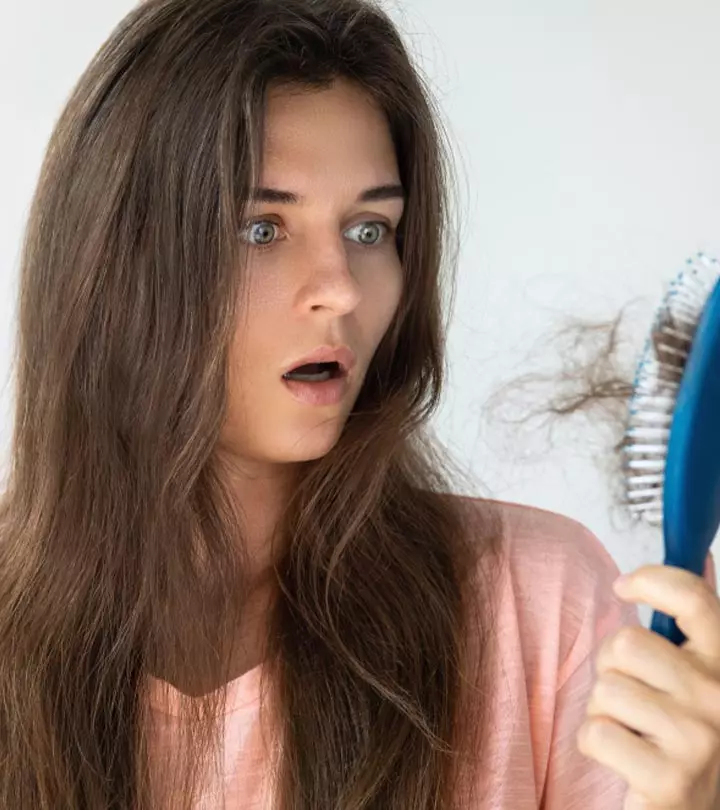
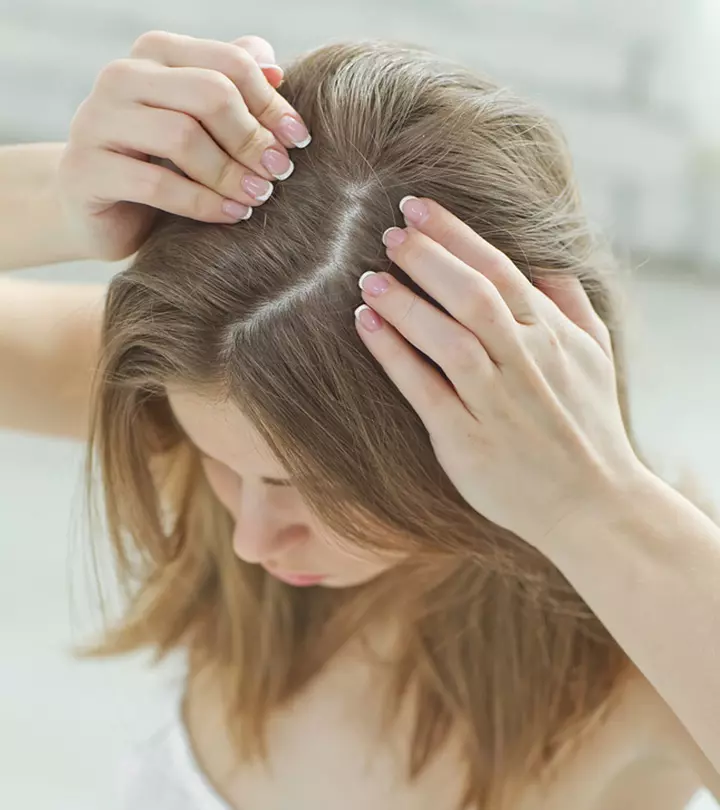

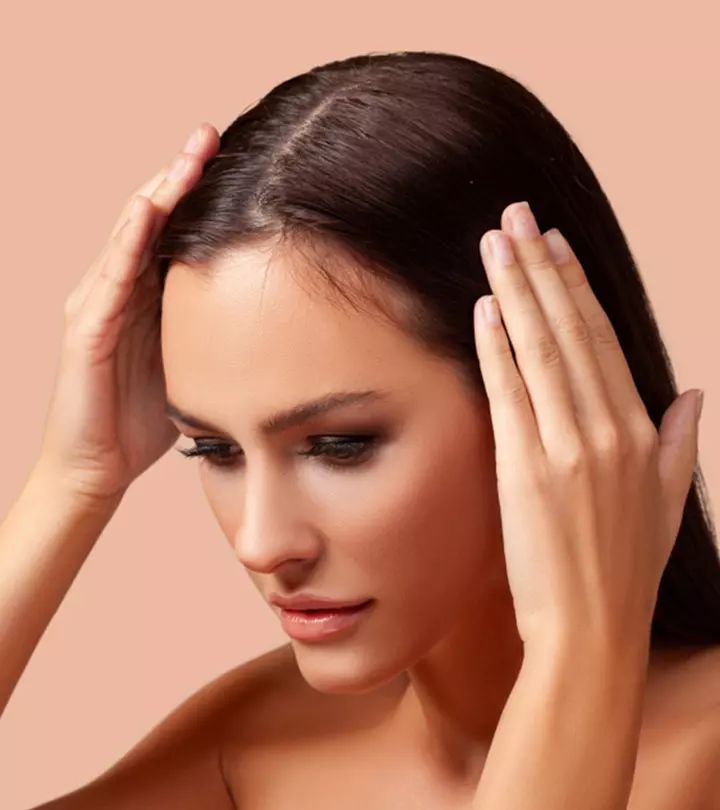
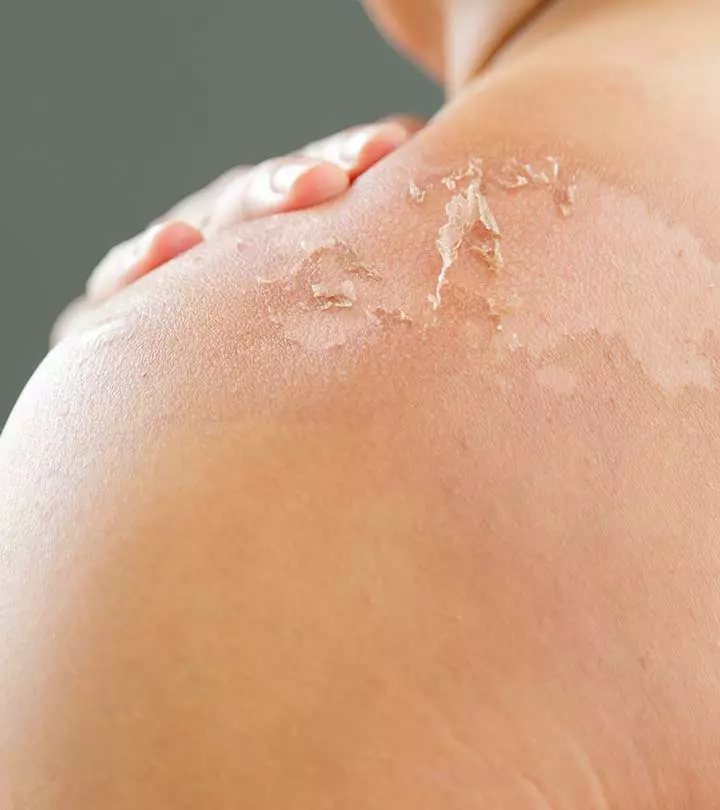
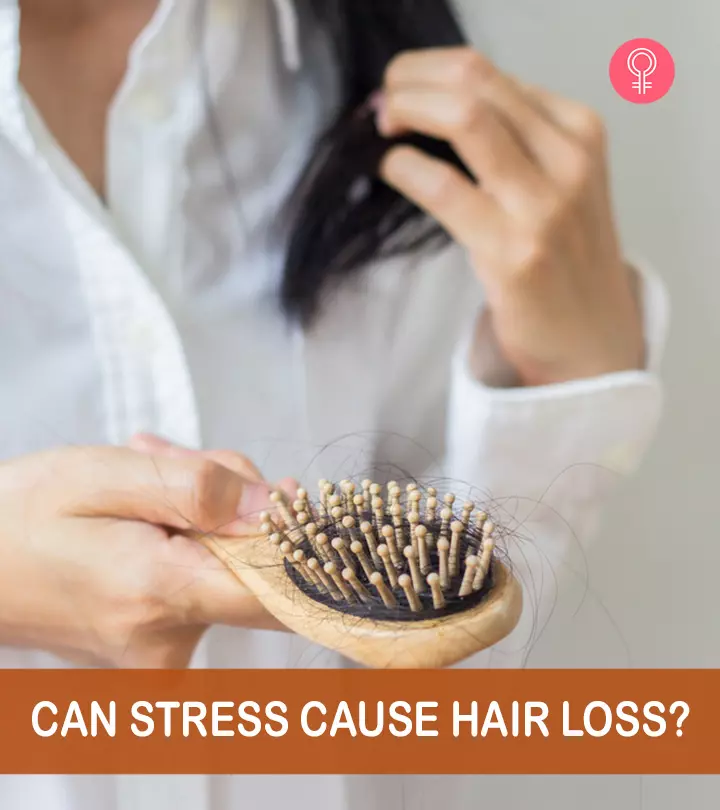
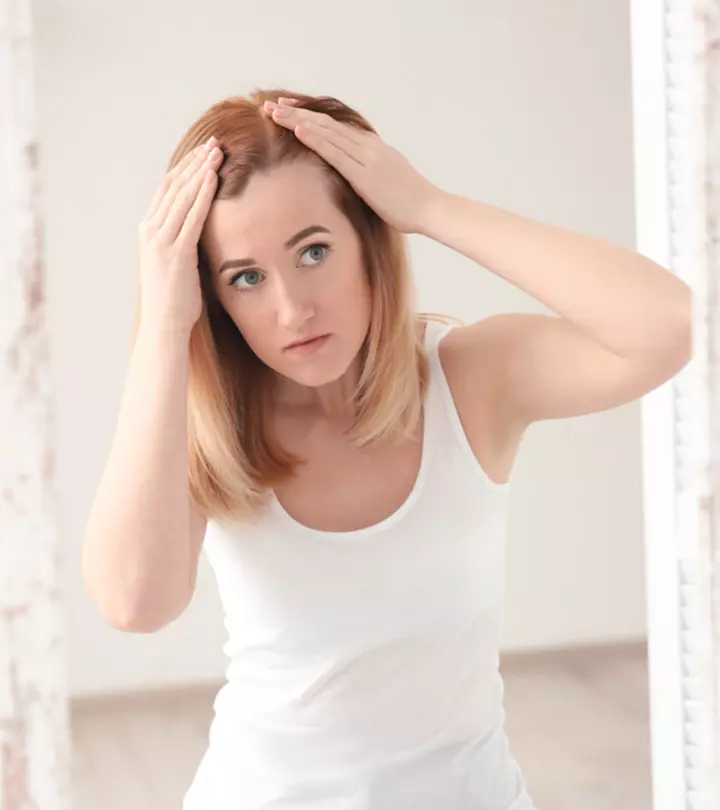
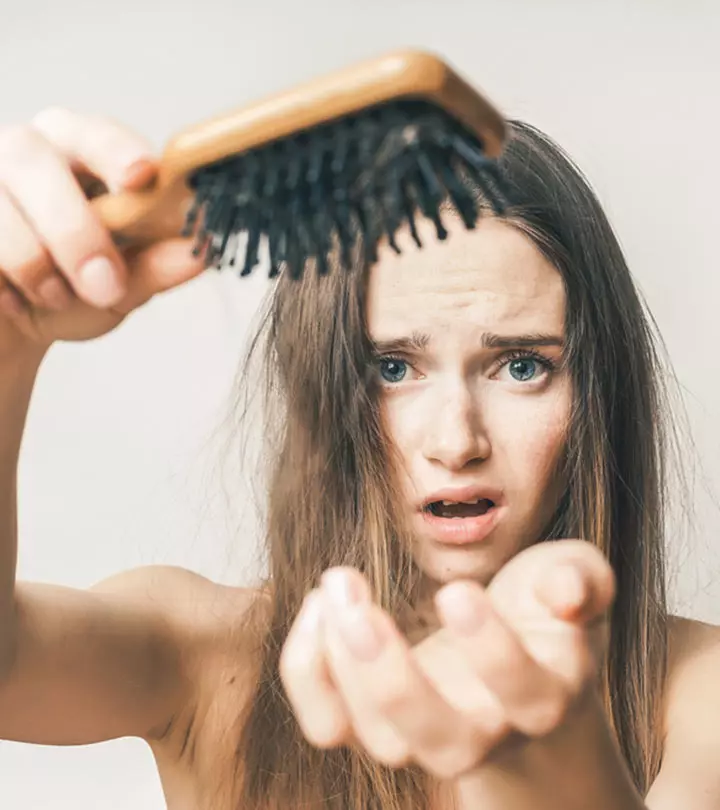
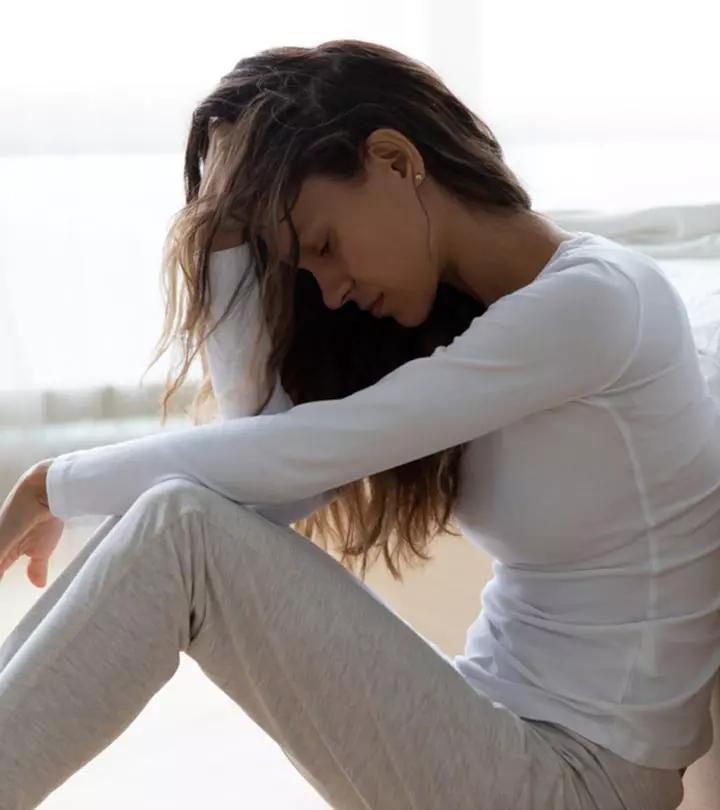
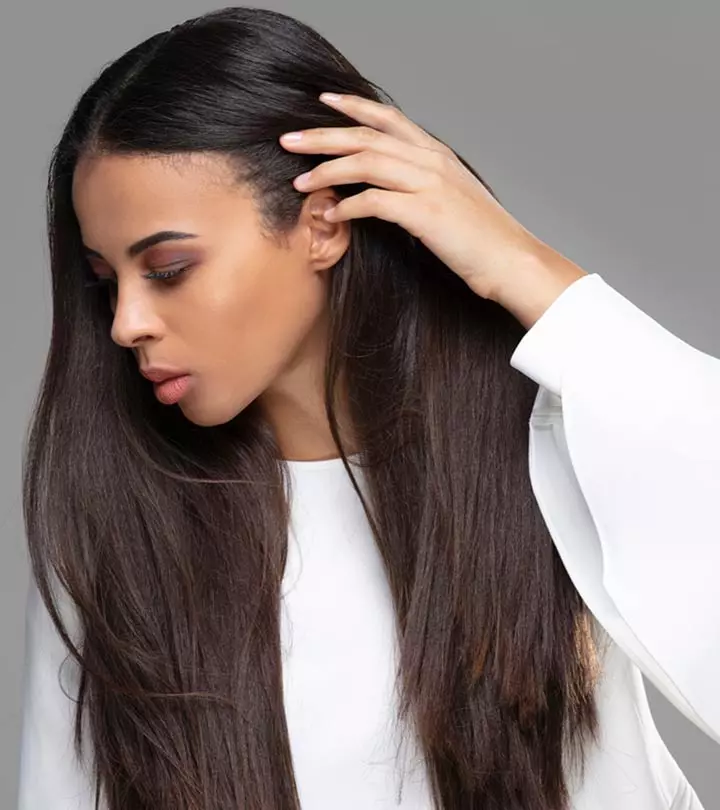
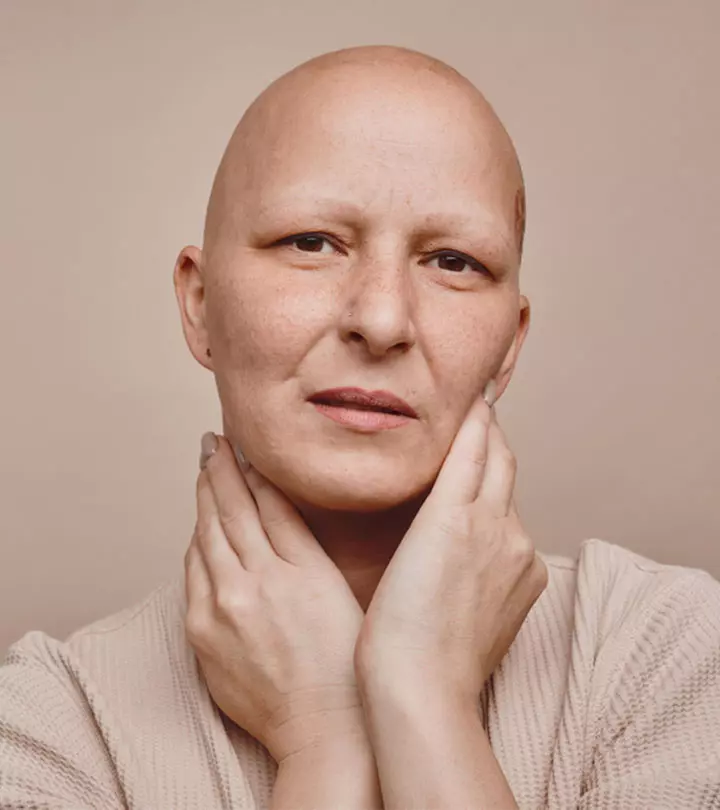
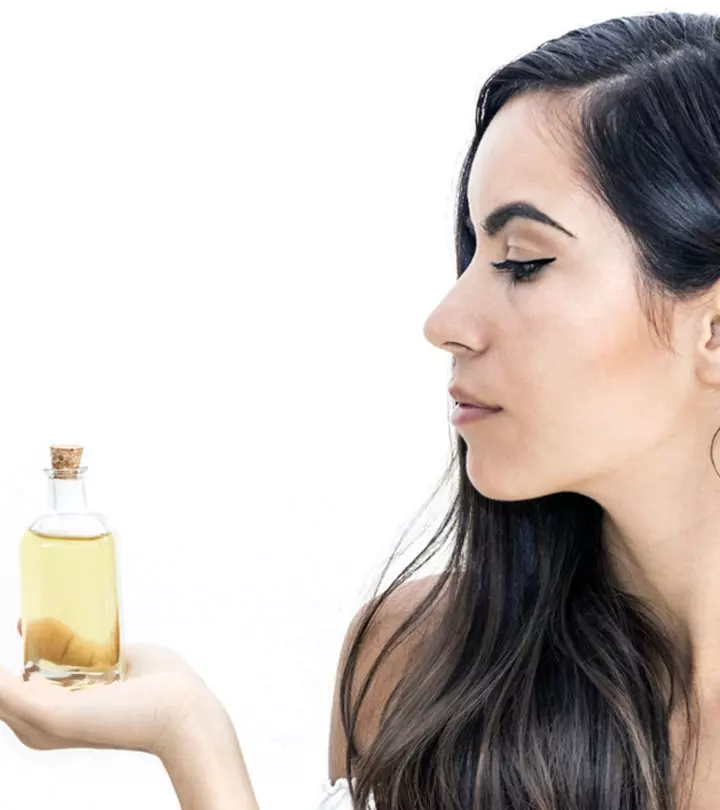
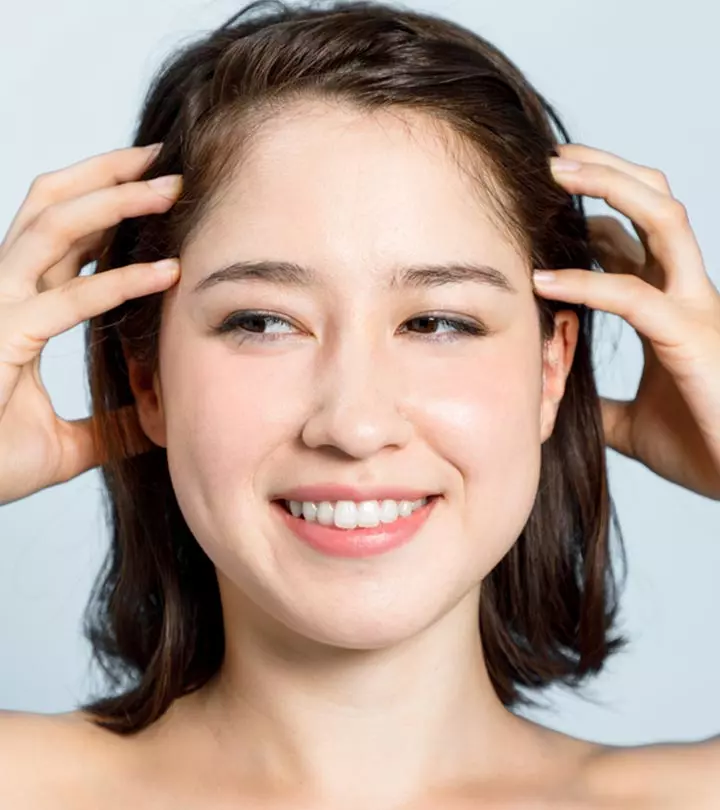
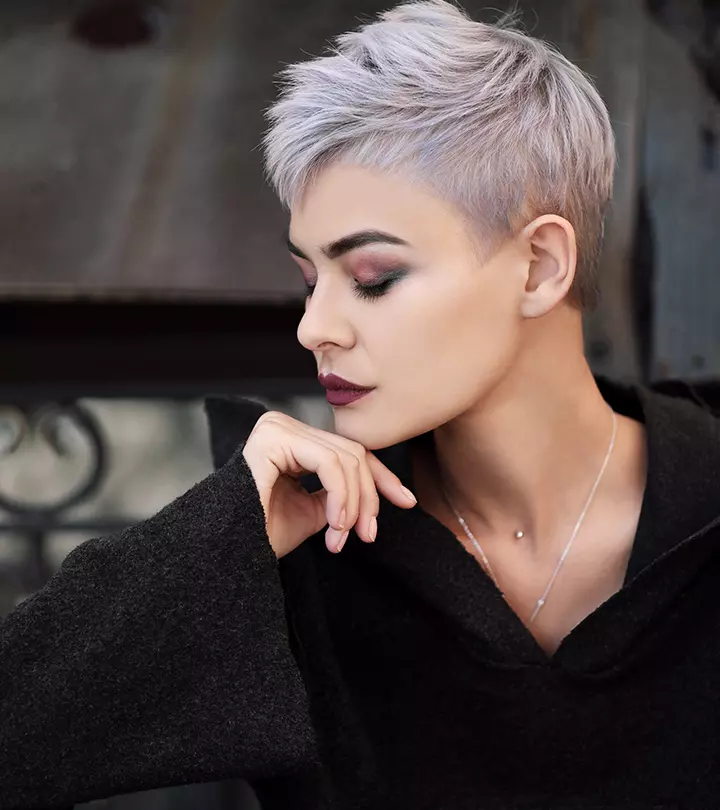
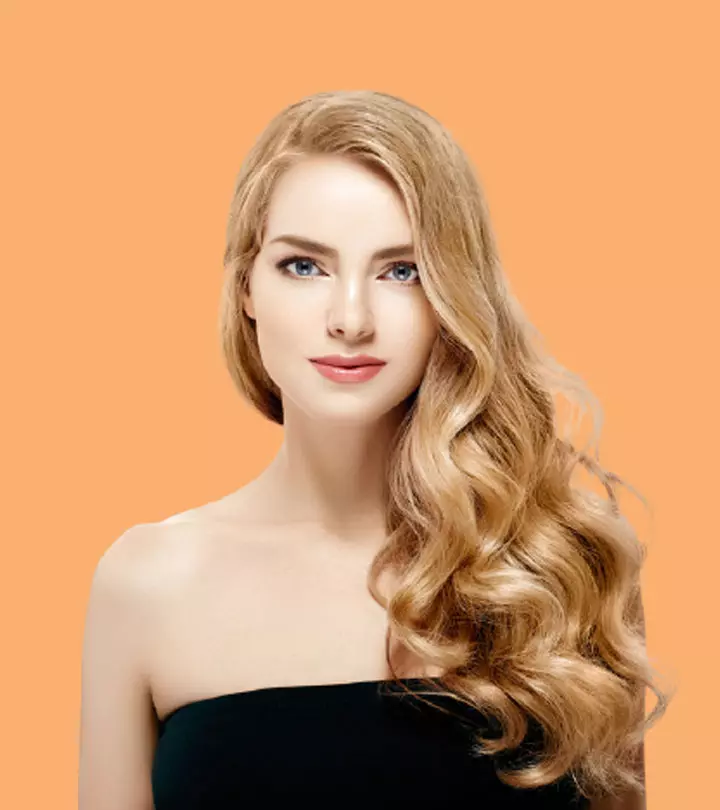
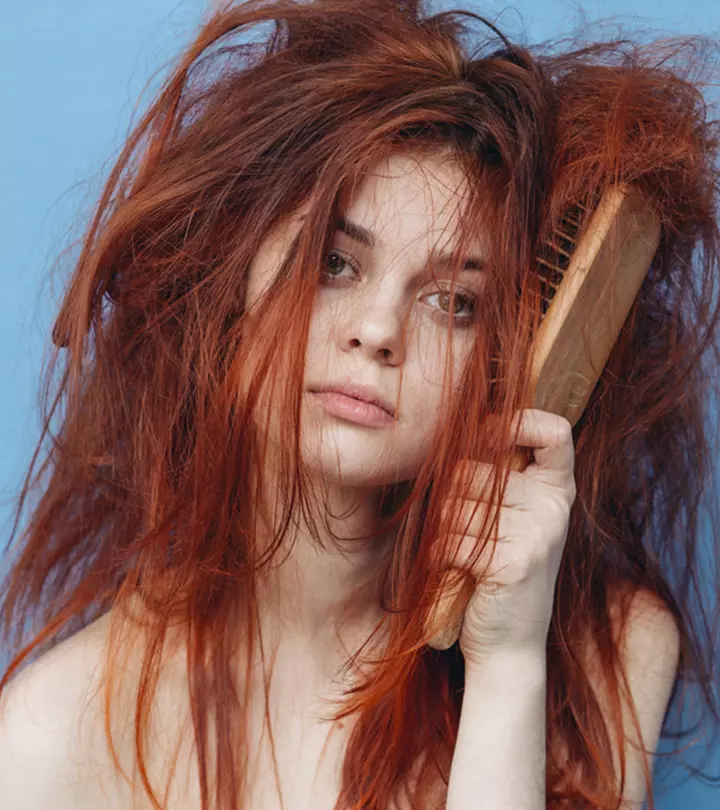
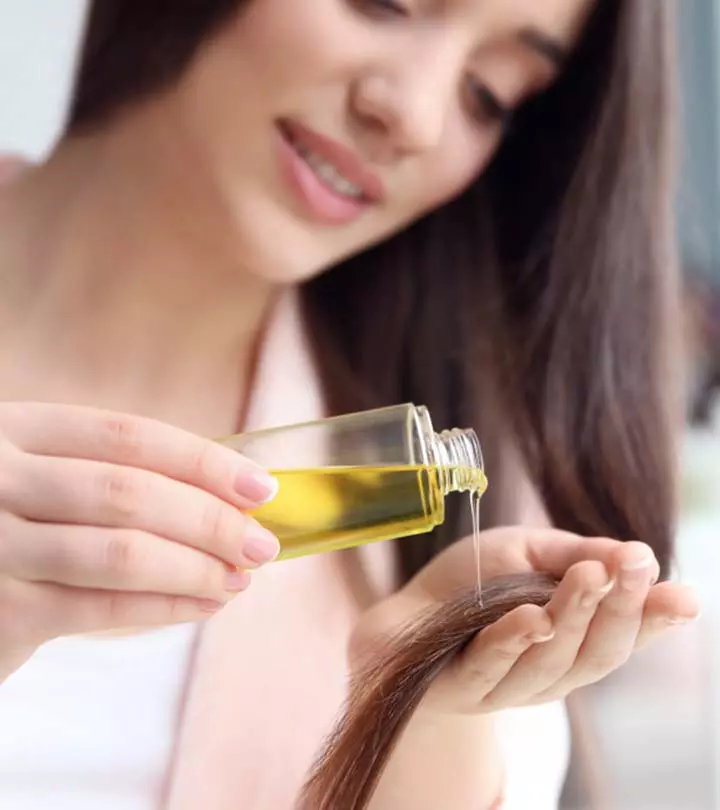

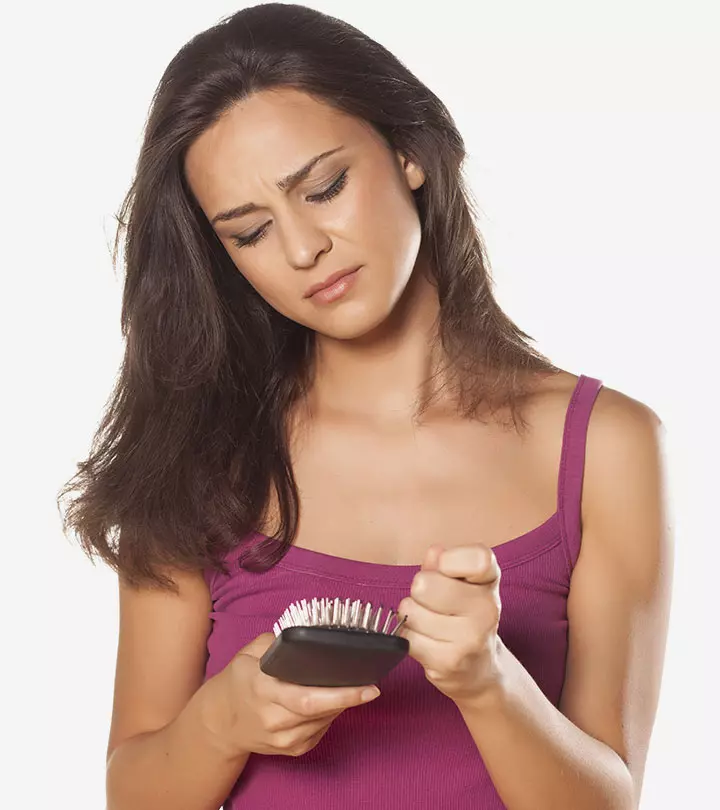
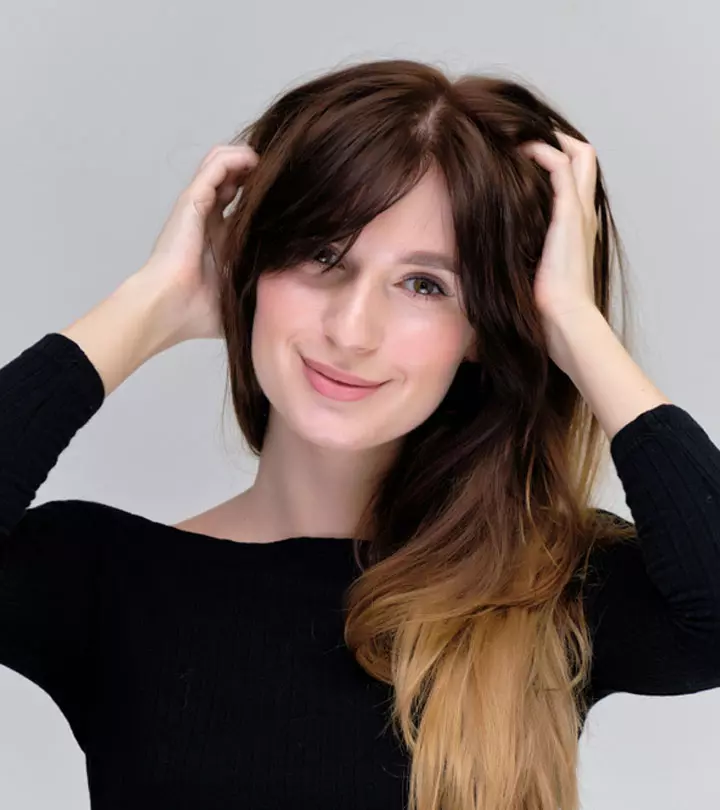

Community Experiences
Join the conversation and become a part of our empowering community! Share your stories, experiences, and insights to connect with other beauty, lifestyle, and health enthusiasts.